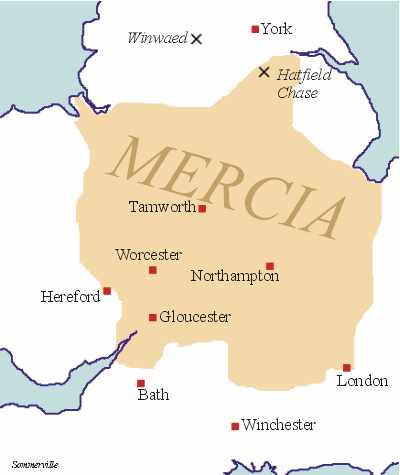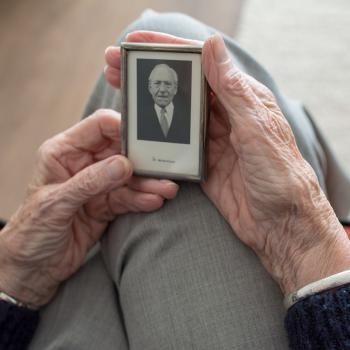There’s a lot of wished for history in paganism. I’ve pined for a golden age filled with druids and temples and gods. If you are anything like me, you’ve read all the fantasy novels and the very cleverly written historical fiction books. Much of the real pagan past is forgotten. Records have been lost to time and in other cases contemporary accounts never existed to start with. Pagan academics, amateur historians, and Google historians have searched high and low for hidden nuggets of pagan history and some real gems have been unearthed. When I was a young lad, I learned about the pagan kings and queens of England. The story of Penda has always stuck with me.
Penda: A Pagan High King
You might think the legendary King Arthur was the last pagan king of Britain. He wasn’t. The last pagan high king of Britain was Penda and he lived in the seventh century. By all reports, we know that Penda expanded the kingdom of Mercia, in what is now the British Midlands. Penda did this by way of a very sharp and bloody sword and a great deal of statesmenship.
The 8th century Northumbrian monk, Bede, wrote extensively about Penda. He painted him to be a murderous villain and refused to acknowledge him as the bretwalda, or high king. Bede disfavoured Penda because he was a pagan, in part because he was Mercian, the arch enemies of the Northumbrians, and in part because he was, admittedly, pretty murderous.
In 635 CE, king Siegbert of East Anglia came out of retirement as a monk and faced Penda in battle. Siebert converted to Christianity and spent much of his time as king of East Anglia spreading Christianity by setting up monasteries around the kingdom. King Siebert marched into battle, armed only with his faith and his staff. He was promptly slaughtered on the spot, along with his retinue, and later venerated as a martyr.
Penda controlled much of Britain from 630 CE until 655 CE. His kingdom stretched from the British Midlands, down into the counties of Sussex, Surrey, Kent, and even the Isle of Wight. He made strong alliances with the the Welsh king Cadwallon of Gwynedd and Cynfeddw, prince of Gwent, who were no friends of the Northumbrians. He set up client, or puppet, kingdoms as buffers from the south.

Penda Was A Pagan Through and Through
We know that Penda was a devotee of Wod. Even though we don’t have any materials describing exactly what devotees of Wod practiced, there are references to some religious practices. Celt-Germanic tribes of Britain believed in a pantheon of gods, goddesses and tutelary spirits. Wod was chief among the gods and Nerthus, was a revered earth goddess. The Matronae, or The Mothers, were also vitally important.
Sacrifice, offerings, and feasts were part of early Celtic-Germanic religions. Penda famously offed his regal victims in ways that could be viewed as sacrificial. One such case is Oswald of Northumbria. He was killed in battle by Penda.
Oswald’s body was disposed of in an odd way. His hands, forearms and head were attached to stakes. The mostly likely reason for this being the none too subtle message of “look what I did to your so called king. Bow down to me unless you want to suffer the same fate.” But there’s some research that suggests this might have had a religious significance too. The pagan Penda might have been re-establishing the world tree, or axis mundi, as a signal to the converted Christian kings and local rulers, that the pagans were back and their gods were a bit more active than ol’ Jesus and Jehovah.
Later in life, Penda eased up a bit. His own children were married to Christian rulers and/or converted themselves. He, however, never did.
Penda Died In Battle
As you might expect, the old saying of “Live by the sword, die by the sword” applies to Penda. His final battle is recorded at Winwaed. He died at the hands of Oswy of Northumbria. He really should have won the battle with his superior forces and the numbers on his side. Torrential rains caused the River Winwaed to rise and flood the battle field. His huge army was bogged down and couldn’t react as quickly as Oswy’s smaller and more nimble forces.
Penda ruled a vast area of Britain for many years, both in peacetime and in battle. He united the British kingdoms under Mercian rule and rightfully earned the title of bretwalda. Penda was the last Pagan High King of Britain.
















